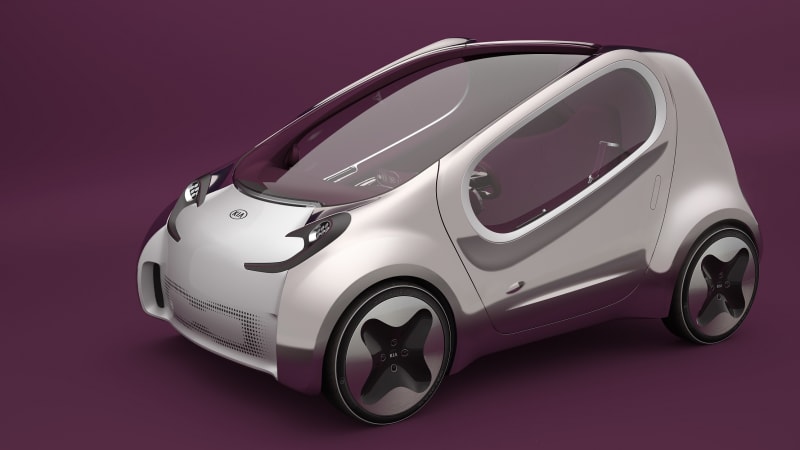Kia considering tiny EV to give commuters an alternative to taking the bus
https://ift.tt/2Xw1LsH

One of the more unexpected side effects of the coronavirus pandemic that’s wreaking havoc on society is that public transportation is no longer being stubbornly celebrated as the solve-all alternative to driving. Commuters are afraid of catching the virus in a bus, and this trend is encouraging automakers to consider adding small, urban-friendly electric cars to their portfolio. Kia could jump into this segment to rival Citroen’s $22-a-month Ami.
“People want to feel safe today. We saw that clearly from a survey that was done after coronavirus in China, which showed people had moved from public transportation to private transportation,” explained Emilio Herrera, the chief operating officer of Kia’s European division, in an interview with British magazine Auto Express.
He added 34% of respondents used private transportation before the virus began to spread; that number went up to 65% once the lockdowns and stay-at-home orders began to ease. Kia expects to see a similar shift in Europe and in North America, and Herrera said his team is “studying a proposal on having very small micro vehicles for urban use.” He sees a real potential in this segment, and he has already looked at the aforementioned Ami.
Electrification is key in this corner of the industry. First, it’s difficult to develop a car the size of a golf cart if you need to package it around a 4.0-liter straight-six. Second, these vehicles are aimed specifically at urban users, and big cities in Europe and in Asia are increasingly kicking out non-electrified vehicles. Kia’s pocket-sized car would be primarily used for short trips, and it would never venture farther than a few hundred yards away from a charging station, so it doesn’t need a headline-grabbing driving range to be practical and usable. The 1,070-pound Ami is fitted with a 5.5-kilowatt-hour lithium-ion battery pack that delivers up to 43 miles of range.
Rivaling public transportation is easy when it comes to comfort and convenience, but it’s far more difficult when cost enters the equation. Taking the bus is cheap, so Kia’s electric car needs to be almost as inexpensive. Citroen cracked the code: in France, the Ami costs about $6,600 to buy, $22 a month to lease, or 30 cents a minute via an app-based car-sharing program. Kia envisions users will be able to rent its competitor for a week or for a month via a subscription service “at very low monthly prices,” though it stopped short of providing a dollar figure.
In 2020’s grim context, sharing a car with however many million people live in your giant city may not sound better than hopping on a bus or a metro with them. Kia didn’t address how it would keep users healthy, though it’s presumably easier to disinfect a car after every trip than to clean a bus every time someone hops off.
The yet-unnamed car will likely ride on a platform developed by Kia, and sister company Hyundai could use it to build its own version of the model. Herrera didn’t provide a specific time frame, but Auto Express believes we could see the first prototypes darting through busy cities by 2021 and the production model available to buy, rent, lease, and/or share the following year. And, while he made no mention of the American market, he stressed it won’t be a Europe-centric project; it needs to be global for it to make sense from a financial standpoint.
Kia has dipped its toes in the micro car segment before. In 2010, when auto shows were still happening as-scheduled and Corona was found in a bar rather than on a bus, the South Korean company introduced an urban-bred concept named Pop (pictured) at the 2010 edition of the Paris show. It took the form of a slightly egg-shaped electric car that stretched 118 inches from bumper to bumper and had 100 miles of range. There’s no evidence Kia seriously considered approving the model — which would have slotted below the Picanto — for production.
Auto Blog
via Autoblog https://ift.tt/1afPJWx
May 26, 2020 at 04:55PM
